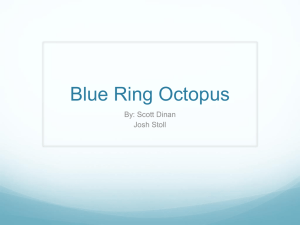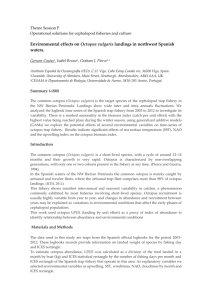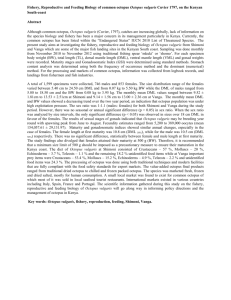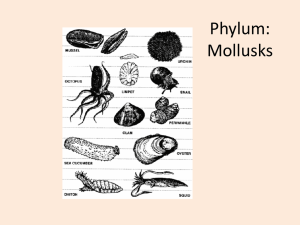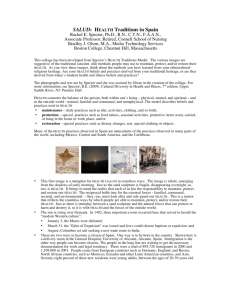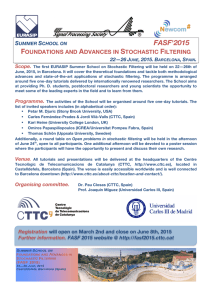Use of stable isotopes to estimate trophic ecology in Common Octopus
advertisement
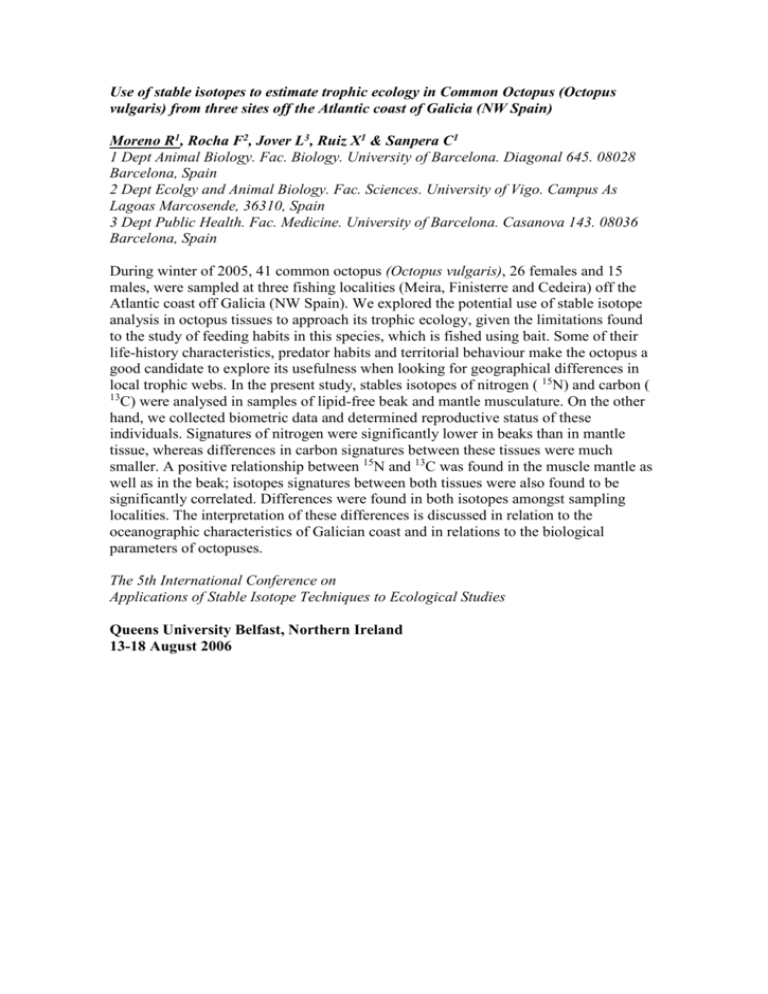
Use of stable isotopes to estimate trophic ecology in Common Octopus (Octopus vulgaris) from three sites off the Atlantic coast of Galicia (NW Spain) Moreno R1, Rocha F2, Jover L3, Ruiz X1 & Sanpera C1 1 Dept Animal Biology. Fac. Biology. University of Barcelona. Diagonal 645. 08028 Barcelona, Spain 2 Dept Ecolgy and Animal Biology. Fac. Sciences. University of Vigo. Campus As Lagoas Marcosende, 36310, Spain 3 Dept Public Health. Fac. Medicine. University of Barcelona. Casanova 143. 08036 Barcelona, Spain During winter of 2005, 41 common octopus (Octopus vulgaris), 26 females and 15 males, were sampled at three fishing localities (Meira, Finisterre and Cedeira) off the Atlantic coast off Galicia (NW Spain). We explored the potential use of stable isotope analysis in octopus tissues to approach its trophic ecology, given the limitations found to the study of feeding habits in this species, which is fished using bait. Some of their life-history characteristics, predator habits and territorial behaviour make the octopus a good candidate to explore its usefulness when looking for geographical differences in local trophic webs. In the present study, stables isotopes of nitrogen ( 15N) and carbon ( 13 C) were analysed in samples of lipid-free beak and mantle musculature. On the other hand, we collected biometric data and determined reproductive status of these individuals. Signatures of nitrogen were significantly lower in beaks than in mantle tissue, whereas differences in carbon signatures between these tissues were much smaller. A positive relationship between 15N and 13C was found in the muscle mantle as well as in the beak; isotopes signatures between both tissues were also found to be significantly correlated. Differences were found in both isotopes amongst sampling localities. The interpretation of these differences is discussed in relation to the oceanographic characteristics of Galician coast and in relations to the biological parameters of octopuses. The 5th International Conference on Applications of Stable Isotope Techniques to Ecological Studies Queens University Belfast, Northern Ireland 13-18 August 2006


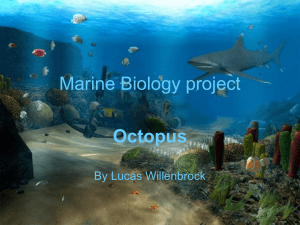

![WIA poetry exercise[1]](http://s3.studylib.net/store/data/006641954_1-9e009b6b11d30a476e3c12c4ba5f8bb1-300x300.png)
